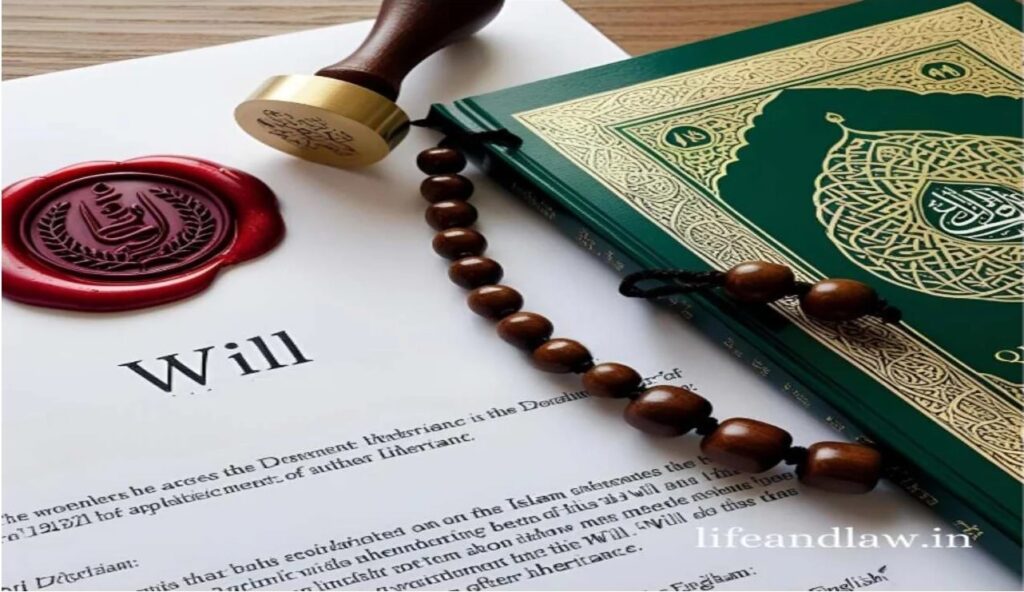Trending

A will (wasiyat) is a legal instrument that specifies how a person’s property will be dispersed after death. Because Islam has special inheritance regulations, a person’s full estate cannot be distributed via will. According to Muslim law, a person can only make a will for one-third of their total property, and only in the name of those who are not legal heirs or for charity purposes.
This article discusses the significance of a Muslim will, the basic requirements for it, and the necessary elements for a will to be legitimate. This helps Muslim persons understand how to properly organize their estate.
A will is a legal document that defines how a person’s property should be dispersed upon their death. Creating a will decreases the likelihood of estate disputes or misunderstandings. In general, a will is written and includes data concerning asset distribution, beneficiary information, and the proportion in which the property is divided.
A will is very important in Muslim law since it establishes inheritance laws. Under Islamic inheritance law, a person cannot disperse their full estate as they see fit. An individual can, however, use a will to leave up to one-third (1/3) of their possessions to other relatives, friends, or charity organizations. If there is no will, the estate is allocated in accordance with Islamic inheritance laws.
The will must be signed by a mentally sound adult who owns the entire property. It must be made spontaneously and without coercion.
The recipient, who may be a relative, friend, or charitable organization, should be clearly stated in the will. If the beneficiary is a legal heir, the other heirs must consent. Only one-third of the estate may be willed.
The will may only include property legally possessed by the testator. Unlawful property is not permitted. Both moveable and immovable assets may be included.
A will can be written or spoken, but writing is more secure. Oral wills must be witnessed. A minimum of two male witnesses, or one male and two female witnesses, are necessary.
Two trustworthy witnesses are required. To avoid conflicts of interest, they must not be the beneficiaries. Testimony follows the Islamic guideline of one male for every two females.
To avoid ambiguity and disagreements, the testator’s wishes must be clear—who receives what, and under what terms.
A will may be altered or cancelled at any moment while the testator is alive. A new will should clearly specify that the old one has been repealed.
Following the testator’s death, legal heirs or beneficiaries make the distribution. Only up to one-third of the estate is allocated via the will. Disputes, if any, are resolved by the court or a Qazi.
Ensure that the testator is an adult and mentally sound.
Create a will for up to one-third (1/3) of the entire property. The remaining property must be reserved for rightful heirs in accordance with Islamic inheritance law.
Consult an expert lawyer to ensure that the will is legally legitimate and carefully written.
In this context, seeking legal counsel from Adv. Abdul Mulla, the author of the article, through sites like: https://easywillindia.com, https://www.asmlegalservices.in, or https://www.lifeandlaw.in can be useful.
Clearly specify the types of property, details about the recipients, and the proportions in which the property will be dispersed.
After completing the appropriate medical checks, receive a doctor’s certificate proving mental soundness.
The will must be signed by the testator in front of two witnesses. The witnesses must also sign the will to ensure its authenticity.
To increase security, register the will with the registrar’s office.
If a new will is created during the testator’s lifetime, the previous will should be properly revoked. The revocation should be properly stated in the new will.
Creating a will under Muslim law is critical for ensuring the right transfer of money in accordance with Islamic inheritance regulations. When creating a will, the testator should focus on properly identifying the assets, carefully selecting the beneficiaries, and confirming the document’s legal validity.
Although registering a will is not required, it is seen as safer to do so in order to avoid future disputes. The presence and signatures of appropriate witnesses are required for legal acceptance of the will. A competent lawyer should always be consulted to guarantee that the will remains legally robust and free of conflicts.
In such cases, requesting guidance from Adv. Abdul Mulla, the author of this article, via sites such as https://easywillindia.com, https://www.asmlegalservices.in, or https://www.lifeandlaw.in can be particularly helpful.
Adv. Abdul Mulla (Mob. No. 937 007 2022) is a seasoned legal professional with over 18 years of experience in advocacy, specializing in diverse areas of law, including Real Estate and Property Law, Matrimonial and Divorce Matters, Litigation and Dispute Resolution, and Will and Succession Planning. read more….
Copyright BlazeThemes. 2025